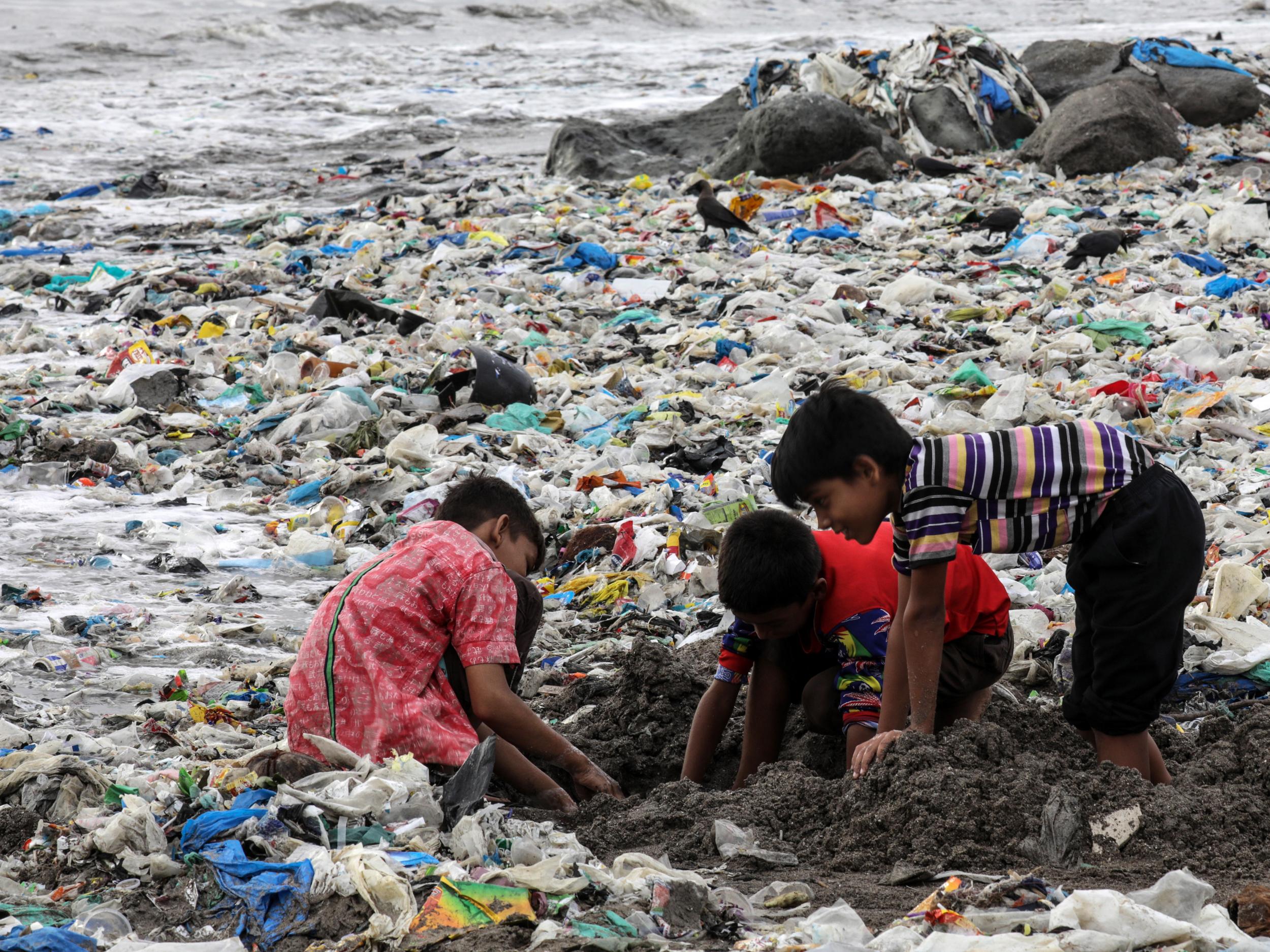Mumbai has criminalised plastic bags in a bid to clean up its littered beaches
It is the largest Indian city to enforce the ban, joining a handful of countries such as Kenya and Rwanda to introduce jail time for using the non-biodegradable product

On Mumbai’s Versova beach, it was once hard to see the sand amid the endless sea of plastic bags and rubbish. The long stretch of coast had essentially turned into a dumping site until volunteers banded together to clean it up.
A few months later, olive ridley turtles began nesting there for the first time in 20 years.
Now municipal authorities are taking a new step in the battle against the plastic waste that afflicts Mumbai, and many other cities across the country, by criminalising the use of plastic bags – with fines of up to 25,000 rupees (£276) and jail sentences for repeat offenders.
India actually has a low per capita plastic consumption of just 11kg compared to western countries, where up to 10 times that is consumed each year, but its cities and water sources are visibly affected by plastic pollution.
In Mumbai especially, the long coastline is plagued by floating plastic litter. In the monsoons, when the seas rise and splash over onto roads, piles of plastic trash litter the city’s sidewalks and roads.
Authorities have already collected $5,000 in fines from 87 shops since the ban was enforced on Saturday, and chains such as Starbucks and McDonald’s have come under fire for failing to replace plastic packaging.
Mumbai is the largest Indian city to enforce the ban, joining a handful of countries such as Kenya and Rwanda to introduce jail time for using plastic bags.
Brought in by the state government of Maharashtra – home to 110 million people – the ban has huge potential to reduce India’s 26,000 tonnes of daily plastic waste.
“Plastic is like a demon, we all must come together to kill it,” Maharashtra’s environment minister Ramdas Kadam said on Monday.
The push towards reducing plastic is part of a national effort in India to clean up its cities and towns. In June, Prime Minister Narendra Modi called on world leaders to curb environmental degradation and plastic pollution.
“Plastic now threatens to become a menace to humanity. A lot of it never makes it to the recycling bin. Worse, a lot of it is non-biodegradable,” he said.
Bollywood stars have chimed in too, using their social media accounts and appearing in government advertisements to discourage plastic usage.
Critics, however, say the ban will affect small roadside businesses and market vendors, in particular, which rely on plastic bags to package items in markets.
Viren Shah, president of the Federation of Retail Traders Welfare Association, told the Mumbai Mirror that 300,000 small businesses in the city had seen around 50 per cent of their sales drop since the ban, and there was confusion about which plastics were allowed and which ones were not.
He said around 2,000 small shops were forced to close over the weekend, and huge quantities of perishables, such as milk, yoghurt and juice, were wasted as retailers feared being slapped with penalties.
Shah said the small business owners are tallying up their losses and may go on strike on Wednesday until the government heeds their concerns.
“We had written letters to the government stating all grocery stores would buy back the recyclable plastic from the customers, but these suggestions were not taken,” he said, according to the Hindustan Times.
Residents and businesses in Mumbai were given a three month period, starting in March, to phase out the usage of plastic bags and find sustainable alternatives instead.
Plastic is the latest target in Modi’s Clean India programme, which also aims to tackle the country’s huge sanitation and public cleanliness problems through vast public awareness campaigns calling on citizens to pull up fellow Indians for littering or defecating in the open.
Some argue the campaign has become overzealous and ill-mannered.
In one recent controversial incident, a Bollywood actress shamed a Mumbai resident for littering. “Why are you throwing plastic on the road?” she was seen asking, in a video posted online by her husband, India’s national cricket captain Virat Kohli.
The man replied in a Facebook post, decrying Anushka Sharma’s behaviour. “The garbage that mistakenly went out of the window of my luxury car... was way less then the garbage that came out from your mouth,” he said.
The man has reportedly served the actress with a legal notice.
© The Washington Post
Subscribe to Independent Premium to bookmark this article
Want to bookmark your favourite articles and stories to read or reference later? Start your Independent Premium subscription today.

Join our commenting forum
Join thought-provoking conversations, follow other Independent readers and see their replies